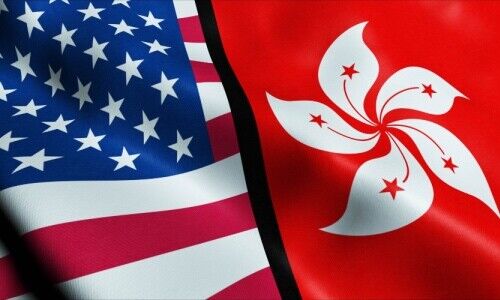The Specter of US Sanctions Draws Closer to Hong Kong
The American Treasury sanctions a drone maker just across the border in Shenzhen in a step that is sure to send chills down the spine of every commercial banker in the city.
Halloween is almost here, and it looks like Hong Kong’s finance sector is in for a good fright this year with an unexpected dollop of US-China geopolitics.
As if on cue, and following Chief Executive John Lee’s 2024 policy address, who himself was censured in 2020, the US Treasury announced sanctions overnight against Redlepus, a Shenzhen-based company, for working with a Russian company to supply drones subsequently used in the war against Ukraine.
First Full Block
Seemingly, the last days of the Biden administration have not stopped steps from being taken against Russian companies and individuals, including the Xiamen Limbach aircraft engine company, which is based on the mainland.
In its announcement, the US stressed that this was the first time it had directly imposed sanctions on Chinese entities that had developed and produced complete weapons systems with Russian firms. Previously, the Treasury maintained it had only blocked mainland companies from providing «critical inputs» to the latter country's military-industrial base.
Dual-Use
In August, for example, the Treasury sanctioned Hong Kong-based Interasia Trading Grun Group, Yayang Trading, Kira International, Most Development, and New Wally Target International for their role in buying dual-use technology in connection with Russia.
This fresh round of sanctions, however, is likely to hit much harder than the first given that Shenzhen is a hub for the world’s largest drone makers, including DJI, which itself was embroiled in the conflict when a Ukrainian minister publicly called them out on Twitter after the invasion in 2022, as an article from «CNBC» indicated then.
Big Headache
The city is also on Hong Kong’s doorstep, an erstwhile fishing village that now far outstrips it in population and is increasingly frequented by residents for leisure and shopping.
This is all likely to become a big long-term headache for the commercial banking sector. Before the pandemic, and the current US-China imbroglio, many institutions were at pains to extend lending facilities to companies and individuals in what was considered to be a booming sector of tech, and one that had bested practically all international competition, including in the US.




























